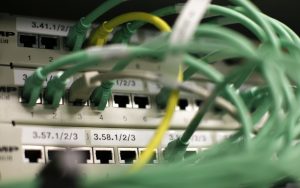By Ashley Erika O. Jose, Reporter
THE telecommunications industry must seize the opportunity presented by the Konektadong Pinoy legislation to address users who missed the initial wave of migration to 4G mobile technology, US cloud and mobile technology company CloudMosa said.
“Telcos are racing to the future with 5G, but growth won’t come from the top alone. The real opportunity lies in those who were left behind in the migration to 4G and beyond. This is a call to action for industry leaders: those who move first to bridge the affordability gap will shape the next decade of the industry,” CloudMosa Chief Executive Officer Shioupyn Shen said in a report on Tuesday.
According to a study conducted by CloudMosa, Konektadong Pinoy will help expedite the phase-out of 2G and 3G, thereby providing a boost to affordable connectivity.
“While the rest of the world is rushing towards 5G, these users (those left behind in the 4G upgrade) present the region’s most overlooked commercial opportunity and telcos are uniquely positioned to move them up the value chain to ultimately close this gap. Doing so will unlock revenue, drive education, employment, economic mobility, and social inclusion,” according to the report.
The Konektadong Pinoy bill is now awaiting the signature of President Ferdinand R. Marcos, Jr., after the two chambers separately ratified the priority measure through voice vote in their respective plenary sessions.
Last week, the Palace said Mr. Marcos will be reviewing the bill in the wake of rising concerns by telecommunications companies. The Department of Information and Communications Technology has expressed optimism that the bill will be signed into law.
A joint statement on Tuesday by several business and industry groups, foreign chambers, public service organizations, tech organizations, and civil society and consumer groups urged Mr. Marcos to sign the bill into law.
The group, which composed of American Chamber of Commerce of the Philippines, Inc.; Canadian Chamber of Commerce of the Philippines, Inc.; Analytics & AI Association of the Philippines; Alliance of Tech Innovators for the Nation; Chief Information Officers Forum, Inc.; Better Internet PH and other industry leaders, described the measure as “landmark legislation that will democratize internet access, which could potentially be this Administration’s greatest legacy.”
The bill aims to increase internet access by relaxing regulations and allowing the entry of more data transmission entrants.
Konektadong Pinoy also raises the prospect of more optimal use of the radio frequency spectrum and the reallocation of underutilized and unutilized spectrum.
Information and Communications Technology Secretary Henry Rhoel R. Aguda has called for expediting the deployment of 5G technology.
The Philippine Chamber of Telecommunications Operators (PCTO) has warned that certain provisions of the measure could weaken regulatory oversight and threaten national security and fair competition.
PCTO President Froilan M. Castelo, in a statement on June 12, warned that the bill raises the risk of unregulated infrastructure and possible foreign control.
The version of the bill agreed by the bicameral conference committee outlines an open-access policy to create a more competitive environment for all qualified participants across the entire data transmission network, while encouraging investment in digital infrastructure to support reliable and affordable data services.
The final version exempts international gateway facilities, cable landing stations, and satellite service providers from legislative franchise requirements. This means any company may build and operate such facilities without going through the safeguards historically used to ensure national security.

